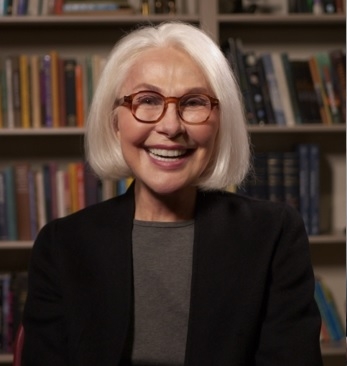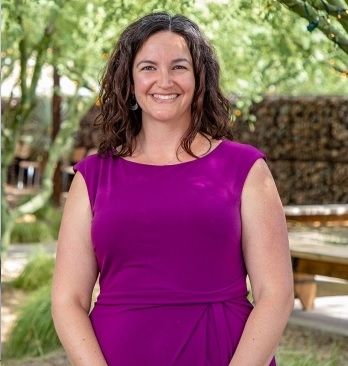Celebrating the women of ASU Online who inspire, advance STEM education
Women throughout history have made significant contributions in the fields of science, technology, engineering and mathematics. Through their contributions, they have opened doors and paved the way for others to advance the work they’ve started and make contributions and discoveries of their own.
Women’s History Month celebrates these women, their roles in American history and their contributions.
Such notable women are found in the faculty at ASU Online, comprising 55% of the faculty who teach online, representative of the students they serve.

Ara Austin
Ara Austin's passion for student success outcomes stems from her PhD work, which analyzed the effects of socio-cognitive and socio-cultural factors on student performance in organic chemistry courses.
Her research focused on student self-efficacy, motivation and self-regulation as well as different forms of capital — a student’s upbringing and their social and cultural environment — and how these factors affect their skills and how they performed in college chemistry courses.
“We find that women and underrepresented students have lower self-efficacy when entering organic chemistry courses,” Austin said. “This is not their fault. We have created a culture and environment in STEM where these students feel like they won’t be successful. We need to do a better job so that our students don’t feel this way because I believe all students are capable of success.”
Now a senior director of online engagement and strategic initiatives at The College of Liberal Arts and Sciences, her focus is on increasing experiential learning opportunities for online students through the Online Undergraduate Research Scholars (OURS) program. The program was developed to address the challenges of offering quality research opportunities to ASU Online students at scale, specifically providing research experiences to underrepresented students in a variety of disciplines.
“We want to help students recognize how important research experiences can be,” Austin said. “It helps students gain skills like communication, interpreting data, writing about the data and then sharing that knowledge with other people.”
In fall 2023, a total of 190 online students participated in OURS experiences; 74% were women, 41% underrepresented minorities and 57% were Pell-eligible.

Carolyn Compton
Carolyn Compton, a professor of life sciences and medical director of ASU’s Biodesign Clinical Testing Laboratory, was named a top female scientist in the world in 2022 and one of the world’s top 100 pathologists in 2016.
Her journey as a pathologist was only the beginning. Compton taught at medical schools, led national institutes and, ultimately, under her leadership, the ASU Biodesign Institute converted its research infrastructure to focus on testing, tracking and mitigating the coronavirus during the COVID-19 pandemic and developing the first saliva-based COVID-19 test in the state of Arizona.
That journey was not met without its challenges. The wisdom she garnered through those lived experiences she now implements in how she approaches teaching.
“I treat them (students) completely equal,” she said. “I get a chance to coach them.”
Comptons says that it’s not only important to lift women up in the field of medicine, but it’s also important to help normalize representation in medicine, to see women in leadership positions and be comfortable with taking direction from them at all levels.

Kristen Parrish
Kristen Parrish, an associate professor at the Ira A. Fulton Schools of Engineering, has expertise in energy-efficient building design and construction. She also focuses on student success, specifically inclusive teaching.
A third of her research work and scholarship looks at how to improve the way that we teach. While that work is focused on how to enhance teaching in a way that engages everyone in the classroom, and is not designed for one specific population, the results can be segmented to look at specific populations.
“It is refreshing and always rewarding to see that some of the things that we try to do in classrooms resonate with populations that have traditionally been kept out of or felt not a part of the engineering and, in my case, the construction discipline,” Parrish said.
In 2022, only about 11% of the entire U.S. construction workforce were women and Parrish is trying to move the needle.
“The most important thing that I tell girls, I tell my daughters and I tell all my male colleagues that have girls is, tell your girls to keep raising their hands,” she said.
“Having the perseverance to keep your hand up until you do understand is important,” Parrish said.
When it comes to engaging more women in STEM, Austin said it's important that women see themselves represented in these fields and continue to advance the strides that have been made to change the status quo. She remembers being gifted books about famous inspirational people in history. The book she liked the most was the one about Marie Curie, a physicist and chemist who was the first woman in history to win the Nobel Prize.
“Representation is important because people connect to others who they can identify with,” Austin said. “It just goes to show that proper representation can lead to a sense of belonging for many of us, and we need it to inspire the next generation of scientists.”
In engineering, Parrish shared that in the past there was an idea that for women to be successful in male-dominated careers, they had to behave the way men behaved — emulating the people that are in power.
“Luckily, we’ve made some progress,” Parrish said. “Broadly speaking, there’s less pressure to become like someone else and there’s more of a celebration of who you are — we want you to be here because you are you. Everyone has something they bring to the table, and let’s celebrate all those identities that are brought to the table and the unique contributions they bring to the team.”
Austin said she wants her students to feel like they have a place in the sciences and feel like they do belong.
“It’s great to see so many women in our science programs at ASU,” she said. “I’m grateful to them for choosing the field as much as they are grateful to me for being an inspiration to them. We need to do a better job at making it normal that women, and all people, are capable of doing science. Even an unconventional person like me had a place. Everyone has a place in science.”
Top photo courtesyThisIsEngineering via Pexels.